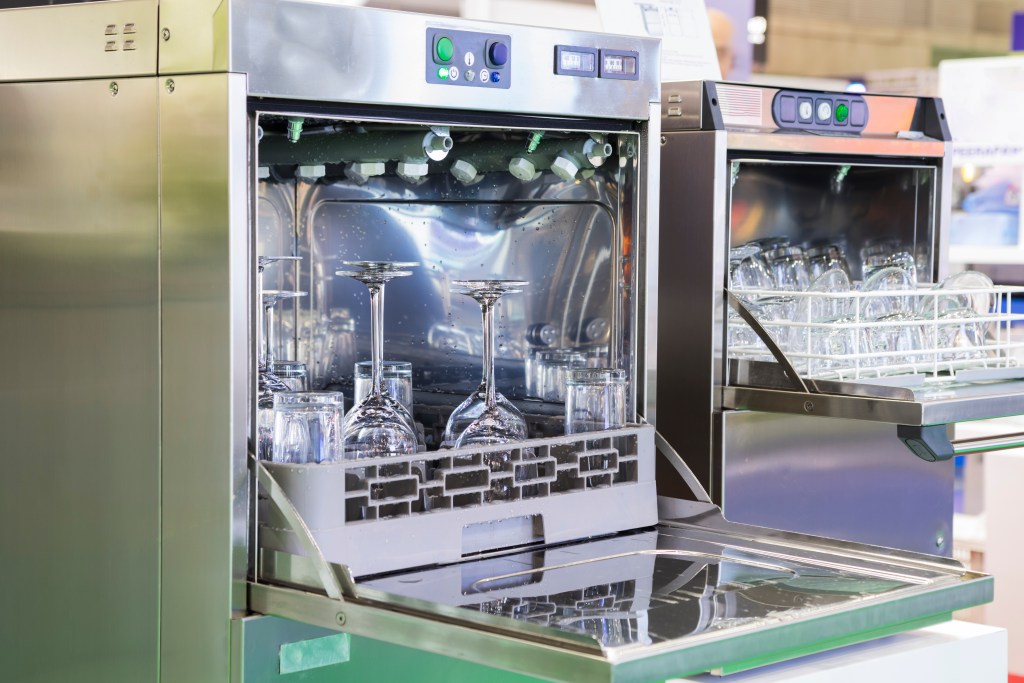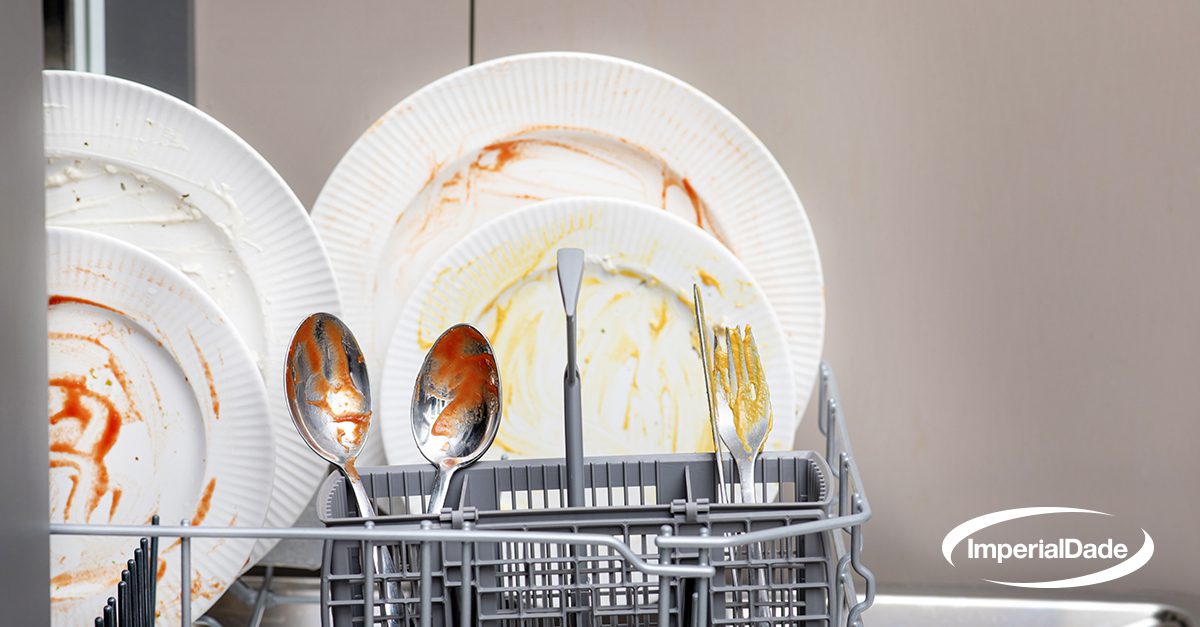Is your commercial dishwasher not cleaning dishes? Does it seem like no matter what you do, wares keep coming out dirty? You’re not alone.
This is actually a very common problem, and it can typically be attributed to an excess buildup of food debris.
Food debris buildup occurs when the employee in charge of loading the dishwasher fails to scrape and pre-rinse each dish.
By scraping and pre-rising, you can make sure the dishes in your facility come out clean, in turn cutting down on energy consumption, lowering excess product usage, and boosting staff productivity.
Let’s look at how scraping and pre-rinsing dishes can effectively prevent food debris buildup, and, in the process, make those issues you’ve been having with your dishwasher disappear.
Do I Need to Scrape and Pre-Rinse Dishes?
The number one reason your commercial dish machine isn’t fully cleaning dishes is that the wares were not scraped and pre-rinsed. It may not seem like much, but, in the long run, scraping and pre-rinsing dishes can have a large impact on how your business runs and is viewed by customers.
PRO TIP: Presoaking dishes will help loosen food debris, making it easier to scrape and pre-rinse. To learn more about the importance of presoaking dishes, check out our video here.
When a dishwasher leaves behind food residue, it causes equipment downtime as the dishwasher has to be rerun on the same load. Even worse than that, dirty wares that go unnoticed by employees can lead to customer complaints, bad reviews, and ultimately fewer customers.
And, without properly scraping and pre-rinsing, the commercial dish machine can quickly fill up with food debris.
Leftover food debris can lead to a number of different problems, all of which prevent the dishwasher from functioning properly and result in dirty dishes.
Some of the most common problems due to food debris include:
- Clogged spray jets, drains, and pump screen
- Malfunctioning water level indicators
- Foul-smelling odors
Clogged Spray Jets, Drains, and Pump Screen
Commercial dish machines are made up of many internal parts that can get clogged by food debris or food particles.
These food particles can clog several important internal components, such as:
- Pump screen
- Drains
- Spray jets
When a blockage occurs in any of these areas, it can cause water pressure to diminish, alter spray patterns, or prevent water from draining.

Reduced water pressure and altered spray patterns can make it difficult for the dishwasher to properly remove food debris from wares.
Clogged drains can lead to dirty water buildup, which can promote the growth of mildew and illness-carrying bacteria.
These problems will inevitably lead to the dishes requiring a rewash, wasting productivity, utilities, and chemicals.
Malfunctioning Water Level Indicators
Water level indicators, or floats, sense how much water is in the clean water tank.
When there is too much food debris in the tank it clings to the float. If a float is covered in enough debris, it won’t be able to sense water levels accurately. If this happens, the machine can accidentally sense that there is more or less water in the tank than there really is.
If the float thinks that the dishwasher is low on water, it’ll continue to pump more water into the tank. This can lead to an overflow of water from the dishwasher, wasting water, over-diluting chemicals, and consuming an unnecessary amount of energy.
On the other hand, if the float thinks that the dishwasher has enough water when it doesn’t, it’ll stop pumping clean water. This can result in mineral buildup and bacterial growth. At the same time, that means the machine will continue to reuse the contaminated water that’s already filled with food debris.
In this scenario, the dishes may come out even dirtier and more contaminated than when they were loaded!
Foul Smelling Odors
Food debris decay is a nasty situation to deal with. It will leave behind a distinctly unpleasant smell on anything that comes out of the dishwasher, including the dishwasher’s internals. Worse than that, decayed food debris prompts the growth of illness-carrying bacteria.
Excess food debris can lead to drain blockages and prevent the float from pumping clean water. When this happens, and the food debris is left with nowhere to go, it will quickly decay.
That means decayed food debris will be recirculated through the machine during wash cycles, essentially re-dirtying the dishes. When this happens, dishes must be washed twice, wasting time, utilities, and product.
Final Thoughts
Removing all the leftover food debris from wares with a good scrape and pre-rinse can save your business from the headache of dealing with the common dishwasher issues above in addition to customer complaints, spotty wares, and increased costs due to wasted product and labor.
So, if you’re ever left wondering why your commercial dish machine isn’t getting the job done, now you know that it may be time to assess whether the dishes are being scraped and pre-rinsed.
If you’re still having trouble with your dishwasher, consider contacting an Imperial Dade facility near you. One of our food chemical management specialists will schedule a free virtual or in-person evaluation of your machine, and work with you to solve whatever issues you may be having.
